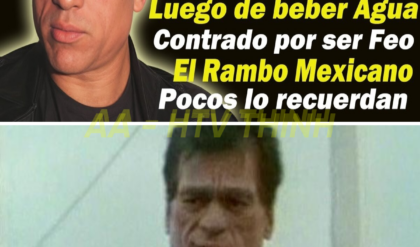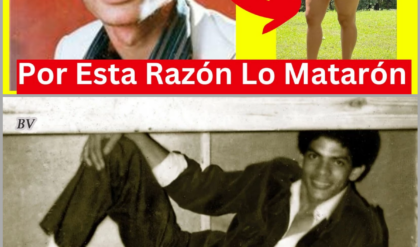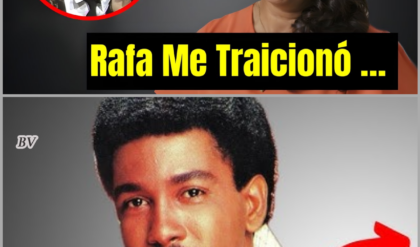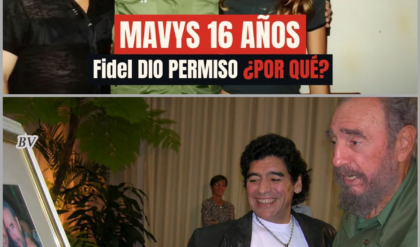Óscar Emilio León Somosa, known worldwide as Óscar D’León or “El León de la Salsa,” is a towering figure in Latin music whose powerful voice and masterful contrabass playing have made him a beloved icon.
Yet behind the joyous performances and vibrant stage presence lies a complex story of struggle, resilience, and personal hardship that few fans have seen.
From his humble beginnings in Caracas to international stardom, and through personal tragedies and health battles, Óscar’s life is a testament to the human spirit’s capacity to overcome adversity.

Born on July 11, 1943, in the working-class neighborhood of Antímano, Caracas, Óscar grew up in a modest household where money was scarce but music was abundant.
His father was a hardworking man, and his mother, a woman of great strength, filled their home with the sounds of jazz, tropical rhythms, and early salsa influences.
These melodies, played on neighborhood record players, ignited in young Óscar a passion for music that would shape his destiny.
Despite lacking resources to buy instruments or afford lessons, Óscar’s determination was evident early on.
At just 16, he crafted a makeshift bass from wood and strings, teaching himself to play by mimicking local musicians.
This self-taught spirit laid the foundation for a career that would revolutionize salsa music.
Working as a mechanic by day, Óscar dedicated his nights to practicing the contrabass and developing a distinctive style that blended the power of jazz with Caribbean rhythms.
His breakthrough came unexpectedly when a lead singer failed to show at a performance, prompting Óscar to step up to the microphone.

His deep, melodious voice captivated the audience, revealing a multi-talented artist who could simultaneously command the stage as both bassist and vocalist.
By the late 1960s, Óscar was a sought-after musician in Caracas, playing with various bands and absorbing diverse musical influences.
His big break came in the early 1970s when Puerto Rican bandleader Bobby Rodríguez invited him to join his orchestra after witnessing Óscar’s remarkable talent.
This opportunity expanded his musical horizons and introduced him to professional arrangements and production.
In 1973, Óscar took a bold step by forming his own group, La Salsa Mayor, where he had full creative control.
The band’s energetic performances and technical excellence quickly earned acclaim.
His ability to sing while playing complex bass lines became his signature, earning him the nickname “El León de la Salsa.
”
Óscar’s international breakthrough came with the hit “Llorarás,” a song that perfectly captured his emotive style and sophisticated arrangements.

His music crossed borders, resonating from New York to Buenos Aires, and helped popularize salsa worldwide.
Other hits like “Qué manera de quererte” and “Ven, devórame otra vez” cemented his status as one of salsa’s greatest voices.
His tours across Latin America, the United States, and Europe introduced salsa to new audiences, making him a global ambassador of the genre.
Despite his growing fame, Óscar remained humble and deeply connected to his fans, treating every performance with respect, whether in small clubs or massive arenas.
While his public life flourished, Óscar faced significant personal challenges.
Multiple marriages and relationships were strained by the demands of fame and touring, leading to complex family dynamics.
His children often felt the absence of their father, who was more idolized on stage than present at home.
Tragedy struck when Óscar lost one of his children, a devastating blow that profoundly affected him and prompted a reevaluation of his priorities.
The loss fueled a desire to reconnect with family and balance his personal and professional lives.
Óscar’s upbringing also influenced his character.

His mother was his biggest supporter, while his father hoped for a more conventional path.
This tension between dreams and expectations shaped his journey.
Known for his candidness, Óscar did not shy away from controversy.
In the 1990s, he openly criticized the commercialization of salsa, lamenting the dilution of its authentic roots.
His outspoken views sometimes alienated industry figures but earned him respect for defending artistic integrity.
He also spoke against racial discrimination in the music business, sharing experiences of being overlooked due to appearance despite undeniable talent.
Óscar revealed how industry insiders exploited him financially during his peak years, a painful betrayal that forced him to become more vigilant.
Óscar’s demanding career took a toll on his health.
In 2003, a serious car accident nearly ended his life, leading to a spiritual crisis and a deep questioning of faith.
Later, a hip fracture during a 2005 concert required lengthy rehabilitation, with doctors doubting his return to the stage.
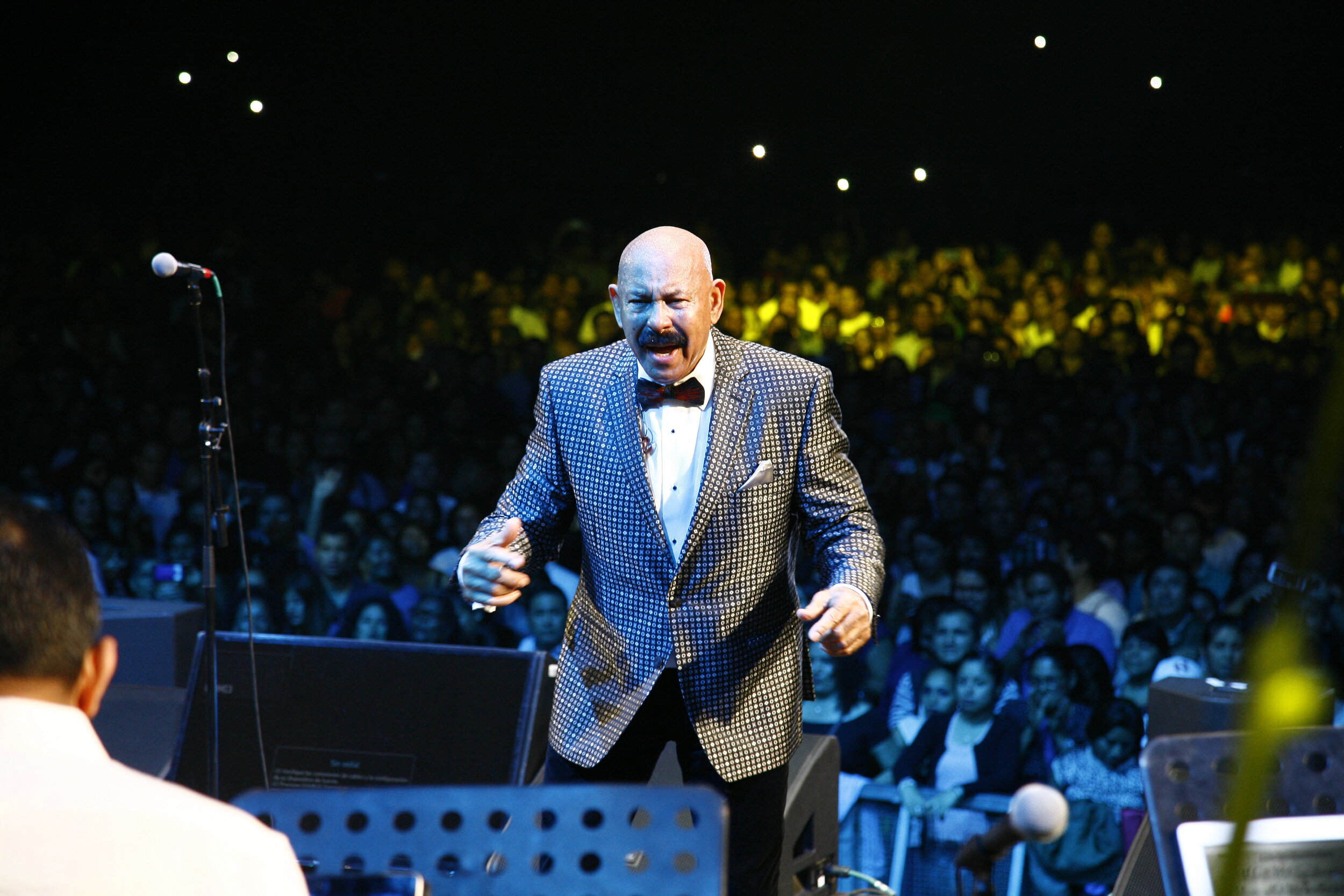
Despite these setbacks, Óscar’s determination saw him back performing, adapting his style to physical limitations.
Diagnosed with heart problems in 2010, he adjusted his lifestyle and stage presence, focusing on musical sophistication over physical energy.
His mature voice gained new depth and emotion, reflecting a life rich with experience.
Óscar reinvented himself artistically, proving that true artistry transcends youth and vigor.
Óscar’s influence extends beyond his music.
He received the Latin Grammy Lifetime Achievement Award in 2013, recognizing his contributions to salsa and Latin culture.
His albums are studied in music conservatories worldwide, and his style set new standards for salsa performance.
Committed to nurturing future generations, Óscar founded a foundation to provide musical education to underprivileged children in Venezuela.
He also mentored young artists across Latin America, sharing wisdom gained from decades in the industry.
His concerts became rare, meaningful events celebrating his legacy, attracting devoted fans eager to witness one of salsa’s last great masters.
Óscar de León’s story is one of triumph and tribulation.
From a self-taught youth in Caracas to a global salsa ambassador, he overcame poverty, personal loss, health crises, and industry challenges.
His music remains a vibrant thread in the fabric of Latin culture, inspiring countless artists and fans.
Even as he embraces the realities of aging, Óscar continues to compose and reflect, sharing philosophical insights on life and music through social media and interviews.
His legacy is not only in his recordings but in the cultural bridges he built and the authenticity he championed.
In his own words, the greatest reward is knowing his music accompanies life’s most important moments for millions.
Óscar de León is more than a legendary musician—he is a symbol of resilience, passion, and the enduring power of music to unite and uplift.
.
.
.
.
.
.
.
.
.
.
.
.
.
.
.
.
.
